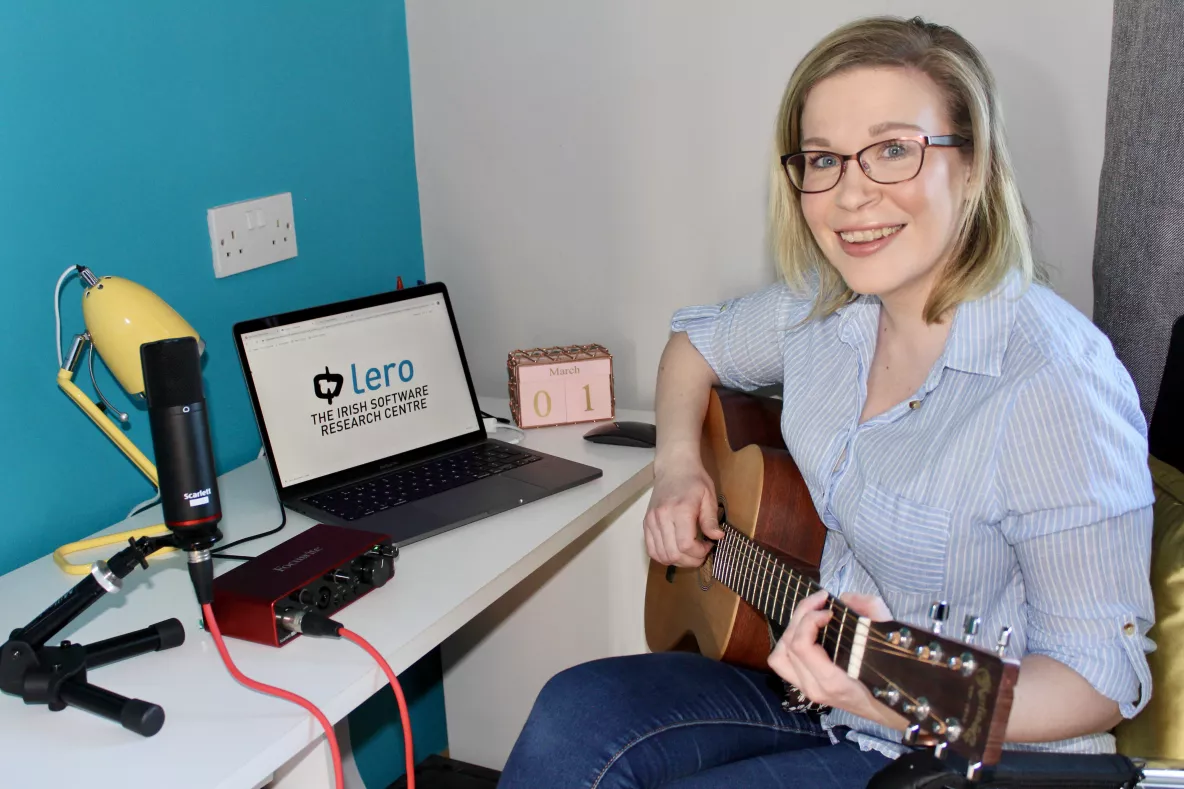
Online music therapy as an effective intervention for people living with dementia is explored in a new documentary by a PhD student at University of Limerick.
The student documentary ‘Music, Technology and Dementia’, which is released today to coincide with World Music Therapy Day, was funded by Lero, the Science Foundation Ireland Research Centre for Software based at UL.
It provides a snapshot into how people living with dementia are using music and technology at home, according to Galway-based music therapist and UL PhD student Lisa Kelly, who is a Research Assistant with Lero.
“Before the pandemic, I was providing music therapy in a residential care facility for people living with dementia. The residents’ response to music was incredible and provided them with a way to connect when verbal interaction became difficult. The Covid-19 pandemic necessitated us to move to technology to stay connected with one another while safely staying apart, so I was no longer able to provide in-person services,” Lisa explained.
Lisa, who has recently commenced a PhD on this topic, said her thoughts went out to those living in rural or isolated areas who may have reduced mobility, or live alone.
“Could technology and online working be the solution to bridge this gap and help people living with dementia through music? It sparked my curiosity. It spurred me to begin my PhD studies at the interface of music therapy, technology and dementia. As part of this, I wanted to connect with people living with dementia using technology and music daily, as well as those who facilitate online music programmes for people with dementia,” added the Galway native.
Among the contributors to the documentary is Dr Hilary Moss, MA Music Therapy Course Director at UL, who said we know that people can still respond to music in the later stages of dementia.
“When they can’t have a conversation with you, they can sing a song, recall song lyrics, even still play instruments that they learned during their life. I think it’s really important that we investigate and develop online music therapy services for people living with dementia. We are keen to support people who are living at home. We all want to remain at home for as long as possible,” outlined Dr Moss.
Kevin Quaid of the Irish Dementia Working Group, who is living with Lewy Body Dementia, explains that his symptoms are worse at night and how listening to music on his smartphone helps.
“When you wake at night and you don’t know who you are, that’s the frightening part of it. But, if I can get my wits about me and stick in the little earbuds and put on a bit of music. It will just bring me back and bring me around to reality again,” he explained.
Professor Ita Richardson, Principal Investigator at Lero, said that their research is interested in how community healthcare can be provided using software and technology.
“Music therapy is one aspect of this care, so it is very exciting to have the opportunity to understand how technology can change the work of the music therapist while providing additional benefit to those who need it most,” she added.